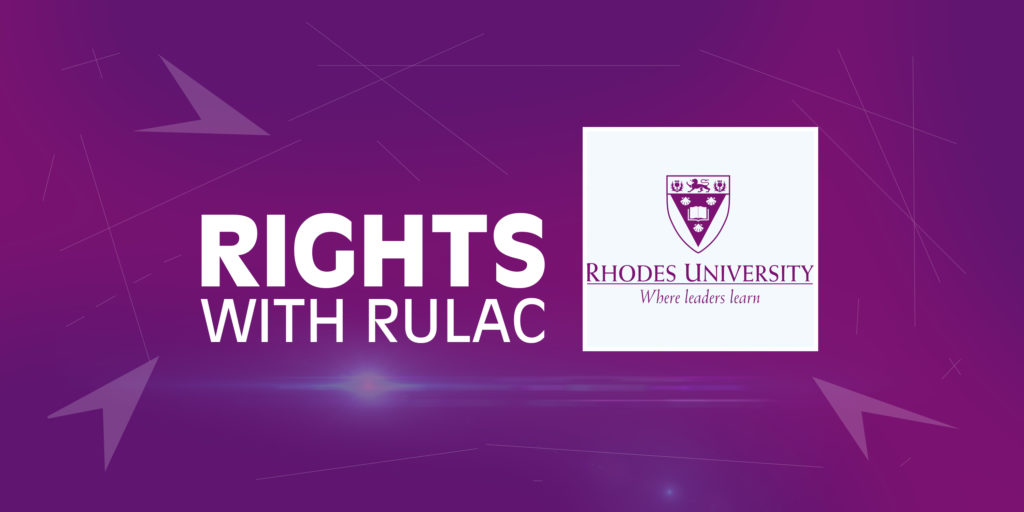By AMANDA MNGOMEZULU
‘You’re fired!’
These are words we never want to hear, but the reality is they’re said more often than we think – sometimes not put quite this way, but the effect is the same. You are being dismissed from work, and you become unemployed.
A dismissal refers to a situation where an employment relationship between an employer and his/her employee is terminated by the employer. Whilst this has many financial and psychological implications for the employee, the fairness or unfairness of the dismissal is always determined by the grounds of the dismissal, and whether or not a fair procedure was observed.
Where the ground for dismissal is related to the employee’s conduct in the workplace, his/her capacity to perform the duties that he/she is tasked with, or is based on the employer’s operational requirements, the dismissal falls within the permitted grounds for dismissal and is considered to be fair provided that the dismissal is in accordance with a fair procedure. A fair procedure requires that the dispute resulting in the dismissal is heard during a disciplinary hearing, and both the employer and employee must be afforded an opportunity to give their side of the story and produce supporting evidence where available.
Operational requirements (retrenchment/redundancy) relate to the needs and requirements of the employer’s business which are based on the economic, technological, structural, or similar needs of the employer. Where a dismissal is based on operational requirements, termination of employment (retrenchment) must be the only reasonable option in the circumstances, and the employer must show that dismissal could not be avoided in the
circumstances.
The Covid-19 pandemic has resulted in a number of job losses in the country, forcing many employers to retrench their employees and rendering their services redundant. The usual rules of labour law still apply, notwithstanding the extraordinary circumstances we live in, and the far-reaching impact of the Covid-19 lockdown on the economy.
Due to the adverse effects of retrenchment, the law requires an employer to seek appropriate measures to avoid dismissals, minimise their number, change their timing, and mitigate their adverse effects before resorting to this measure. It is absolutely necessary that the employer consults all the relevant parties (employees, unions, work forums etc) and provides them with all the relevant documents before reaching the conclusion that the dismissal (retrenchment) of employees could not be avoided in the circumstances.
When an employee is retrenched, the law requires that the employer pays the employee a severance package which must amount to at least one week’s wages for every year the employee was employed.
Where the dismissal of an employee is based on the exercise of his/her rights in terms of the Labour Relations Act (eg becoming a member of a union), or where the employer violates the employee’s statutory legal right, such a dismissal is automatically unfair and may be challenged by the employee or anyone acting on his/her behalf.
Employees who wish to challenge the fairness of their dismissal must first pursue internal remedies by addressing the issue in the workplace, be it via a hearing or a meeting with the aim of addressing the issue. However, where this fails or is not possible, employees may within 30 days of the date of the dismissal (or the employer’s final decision to uphold the dismissal) request the Commission for Conciliation, Mediation, and Arbitration (CCMA) or a bargaining council with jurisdiction to conciliate the dismissal.
In the event that the CCMA or bargaining council certify that conciliation has failed, or if 30 days have passed since referral, the employee may within 90 days of the date on which the certificate of the outcome was issued, refer the dispute to the CCMA for arbitration, or to the Labour Court for Adjudication.
Where the dismissal is found to be unfair, the employer may be ordered to pay compensation to the employee, reinstate the employee or re-employ the employee on any terms with effect from a date not earlier than the date of dismissal, either in the work that the employee had been doing before dismissal or in other reasonably suitable work. Where the employee is ordered to reinstate the employee, he/she must do so with effect from a date not earlier than the date of dismissal.
CCMA referral forms may be collected at the Department of Labour, situated at 20 High Street, Makhanda. Once the forms are completed, they may be submitted to the Department of Labour. The Department of Labour will then communicate with the individuals concerned with regards to further steps to be followed or to provide the date on which the matter may be heard by the CCMA. Matters are heard at the offices of the Department of Labour (Makhanda).
- Amanda Mngomezulu is an attorney at the Rhodes University Law Clinic
Rhodes University Law Clinic helping you
The Rhodes University Law Clinic strives to improve access to justice through the provision of free legal services to indigent people in most areas of law. The Law Clinic has re-opened its New Street offices during ordinary business hours, and is once again available to those members of the public who qualify for assistance in terms of a means test.
For more detail, please contact:
Rhodes University Law Clinic
41 New Street, Grahamstown
Telephone 046 603 7656
lawclinic@ru.ac.za


